The only possible metaphor one may conceive of for the life of the mind is the sensation of being alive. Without the breath of life, the human body is a corpse; without thinking, the human mind is dead.
HANNAH ARENDTJustice insists on the importance of Adolf Eichmann… On trial are his deeds, not the sufferings of the Jews, not the German people or mankind, not even anti-Semitism and racism.
More Hannah Arendt Quotes
-





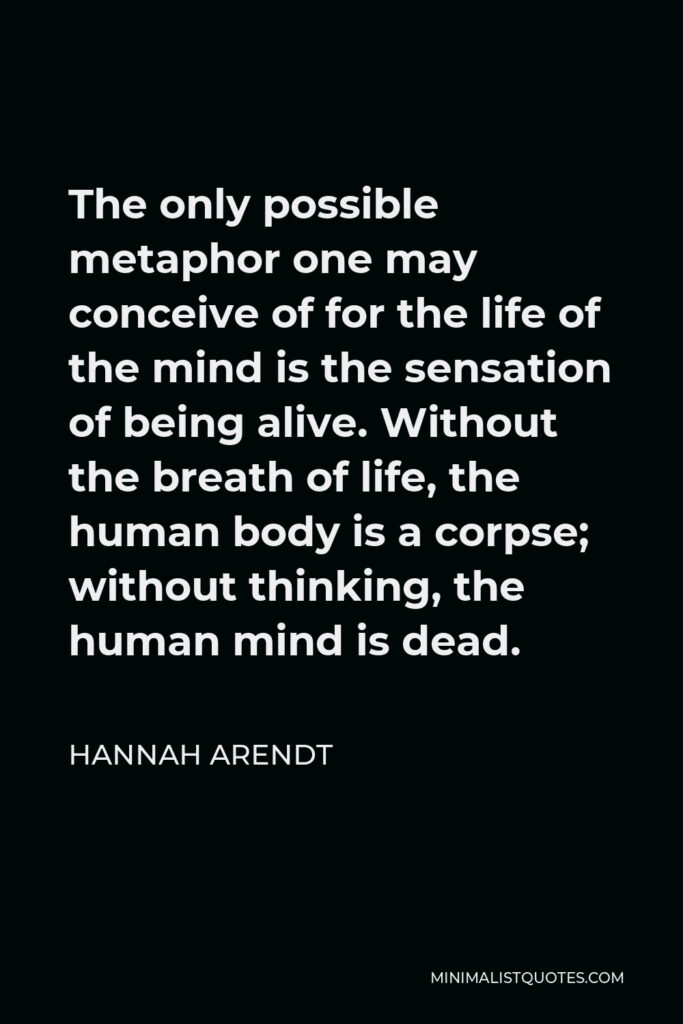

-





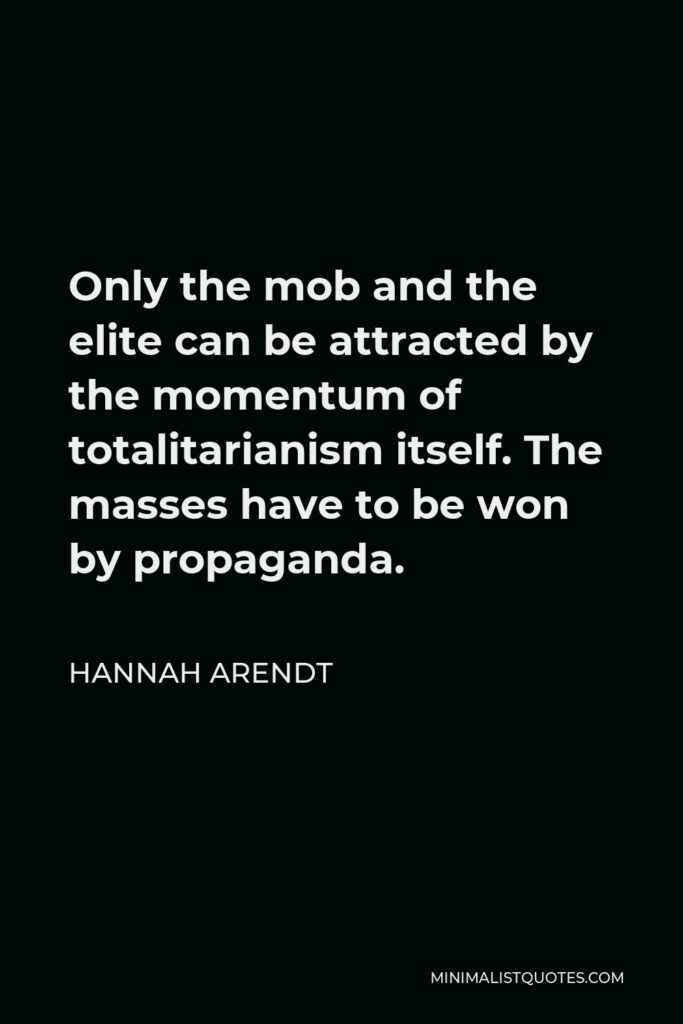

Only the mob and the elite can be attracted by the momentum of totalitarianism itself. The masses have to be won by propaganda.
HANNAH ARENDT -







Justice insists on the importance of Adolf Eichmann… On trial are his deeds, not the sufferings of the Jews, not the German people or mankind, not even anti-Semitism and racism.
HANNAH ARENDT -





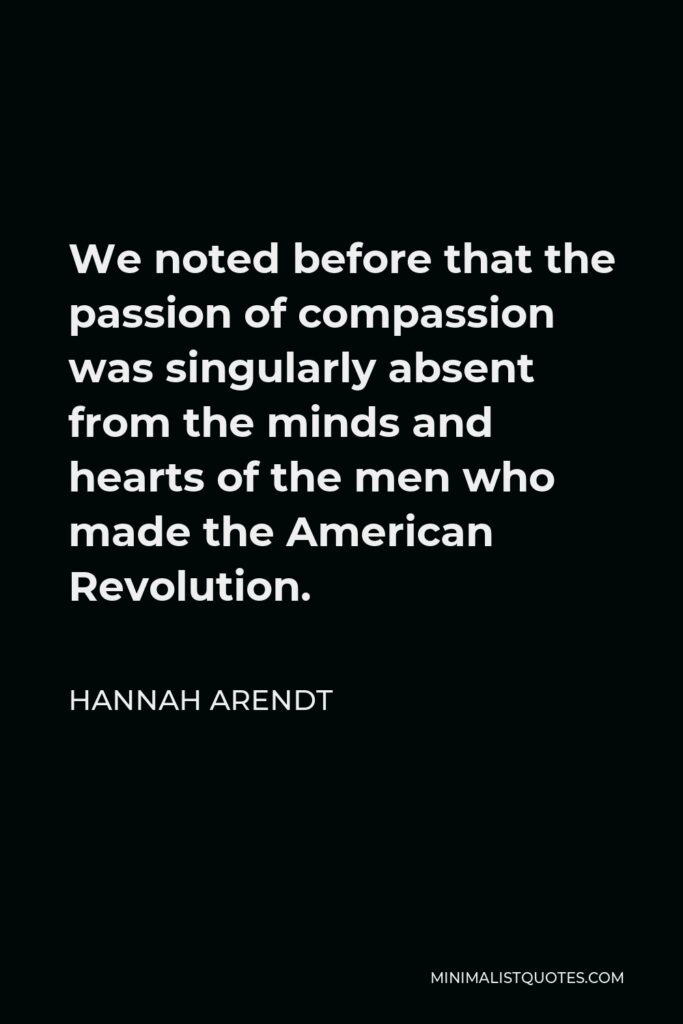

We noted before that the passion of compassion was singularly absent from the minds and hearts of the men who made the American Revolution.
HANNAH ARENDT -





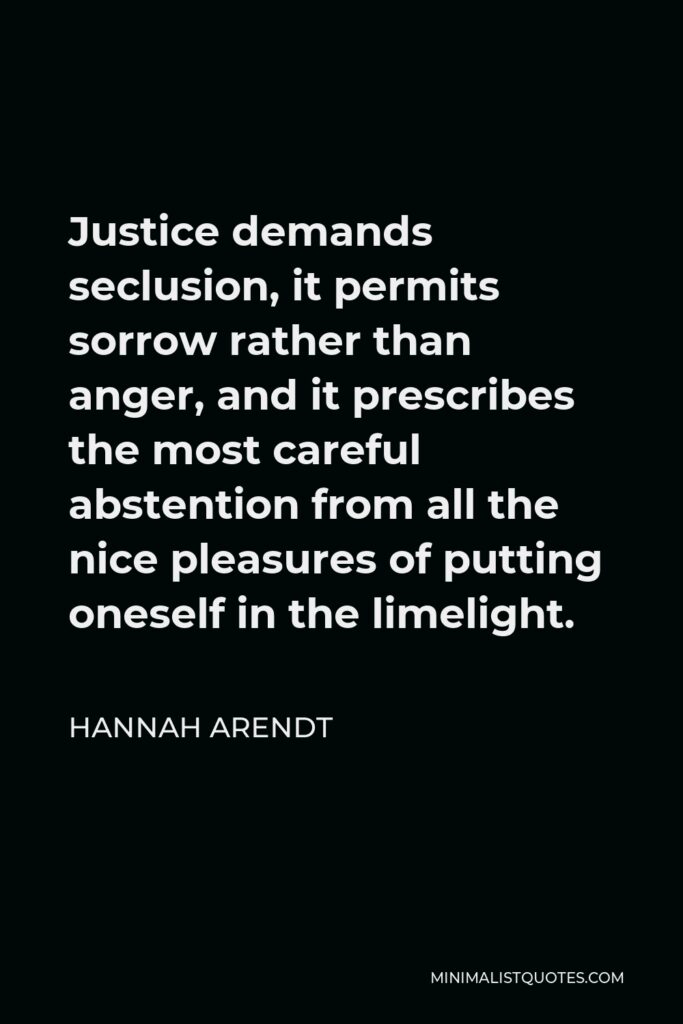

Justice demands seclusion, it permits sorrow rather than anger, and it prescribes the most careful abstention from all the nice pleasures of putting oneself in the limelight.
HANNAH ARENDT -





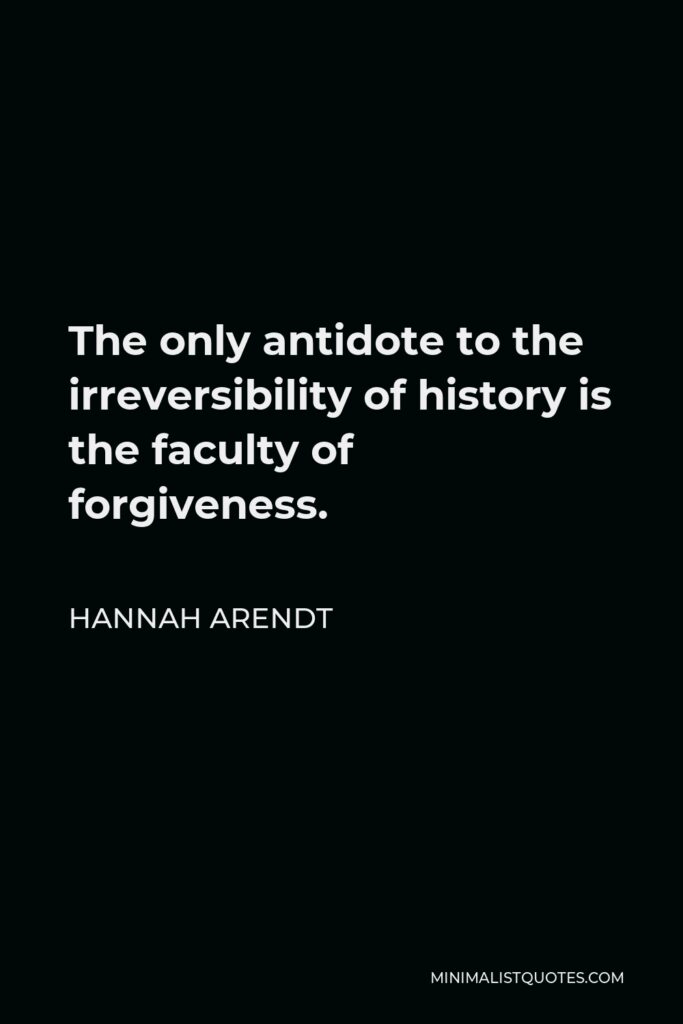

The only antidote to the irreversibility of history is the faculty of forgiveness.
HANNAH ARENDT -





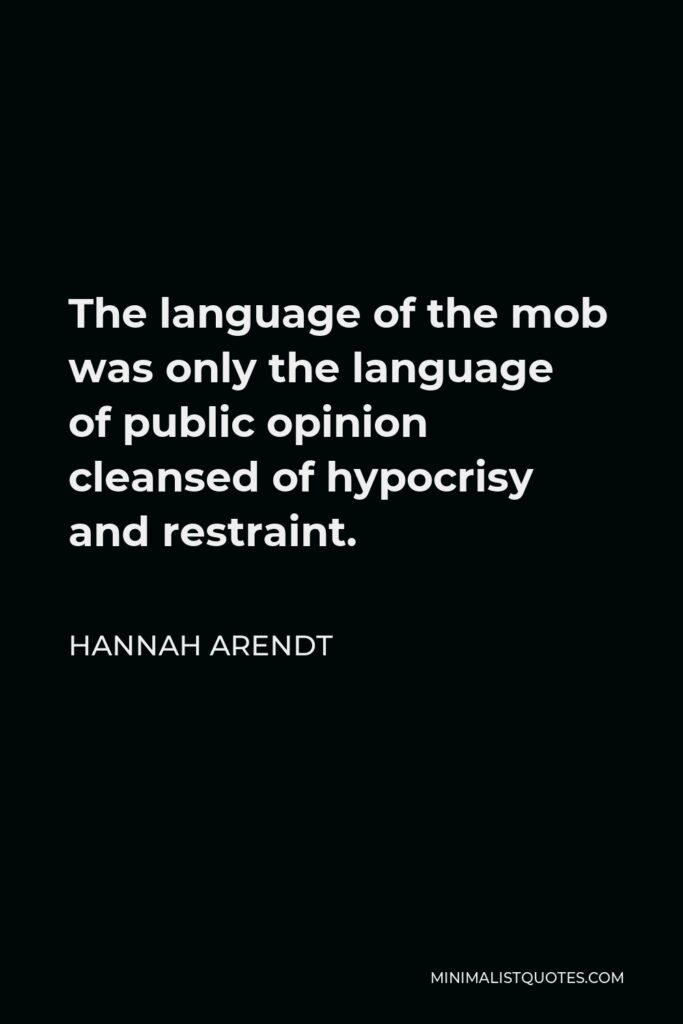

The language of the mob was only the language of public opinion cleansed of hypocrisy and restraint.
HANNAH ARENDT -





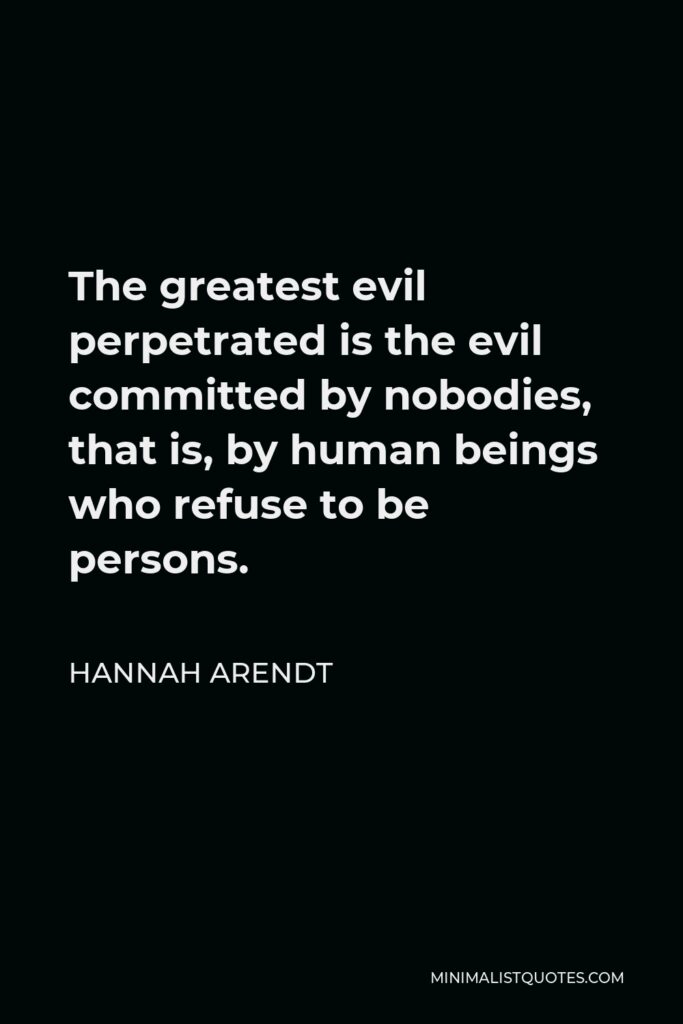

The greatest evil perpetrated is the evil committed by nobodies, that is, by human beings who refuse to be persons.
HANNAH ARENDT -





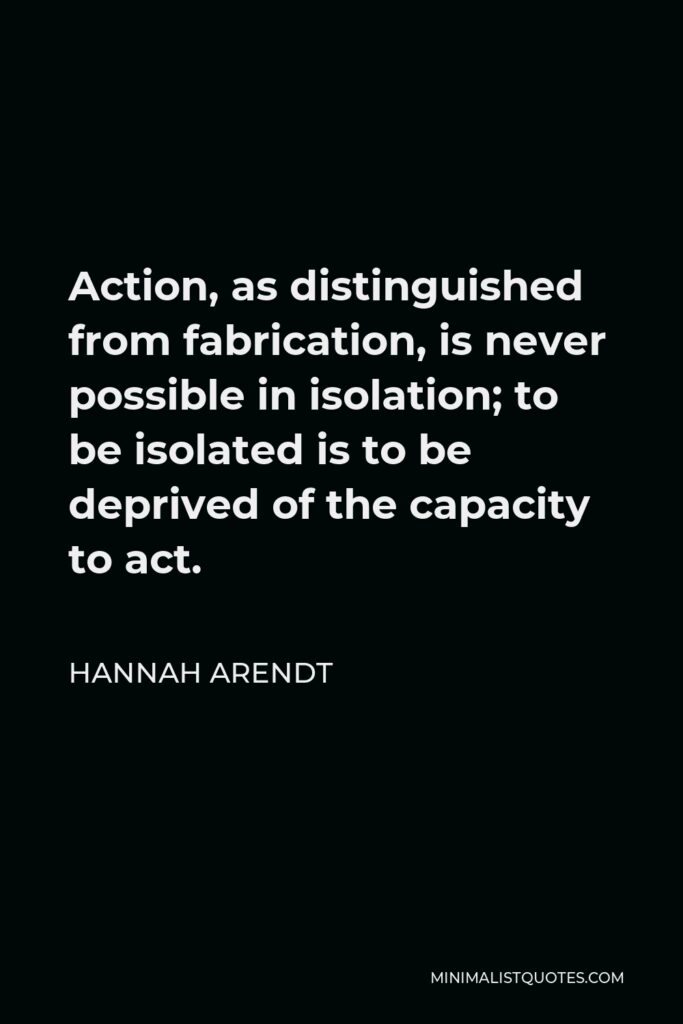

Action, as distinguished from fabrication, is never possible in isolation; to be isolated is to be deprived of the capacity to act.
HANNAH ARENDT -





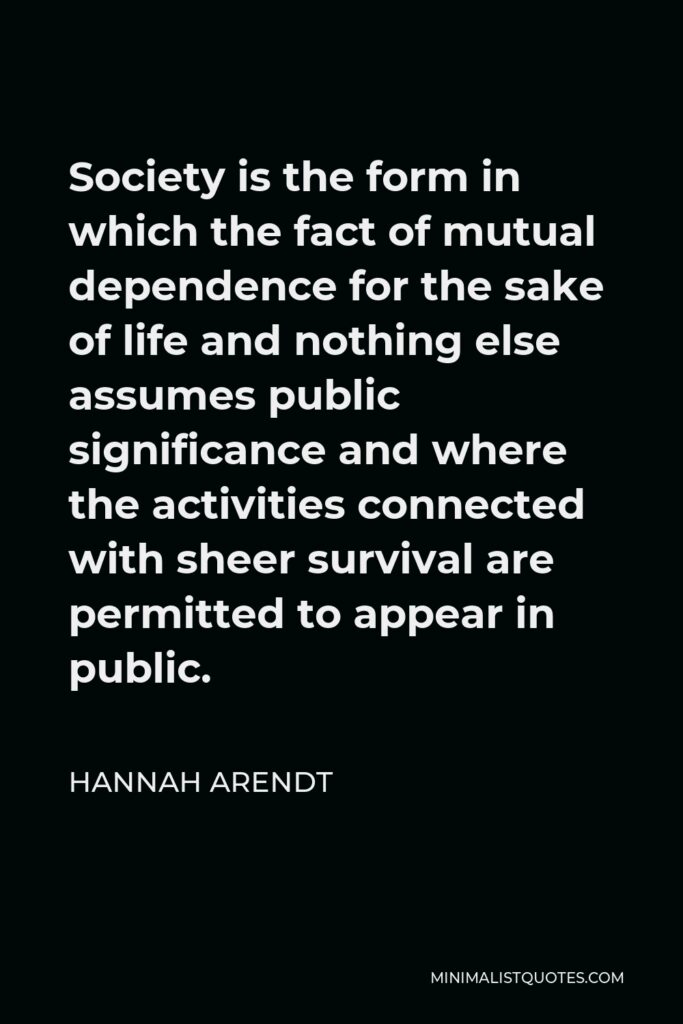

Society is the form in which the fact of mutual dependence for the sake of life and nothing else assumes public significance and where the activities connected with sheer survival are permitted to appear in public.
HANNAH ARENDT -





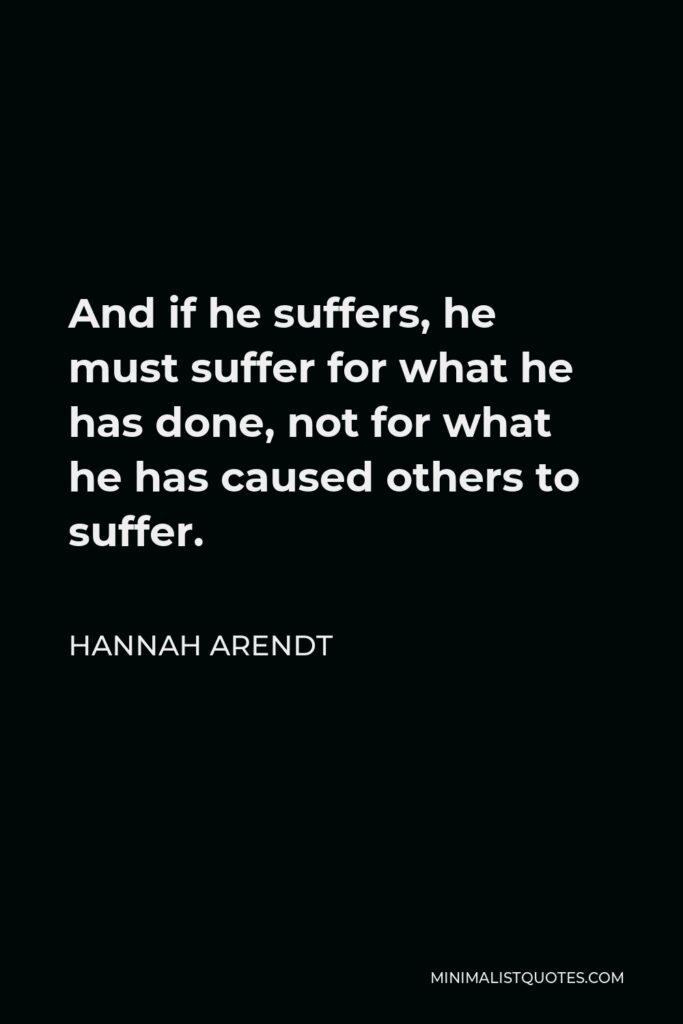

And if he suffers, he must suffer for what he has done, not for what he has caused others to suffer.
HANNAH ARENDT -





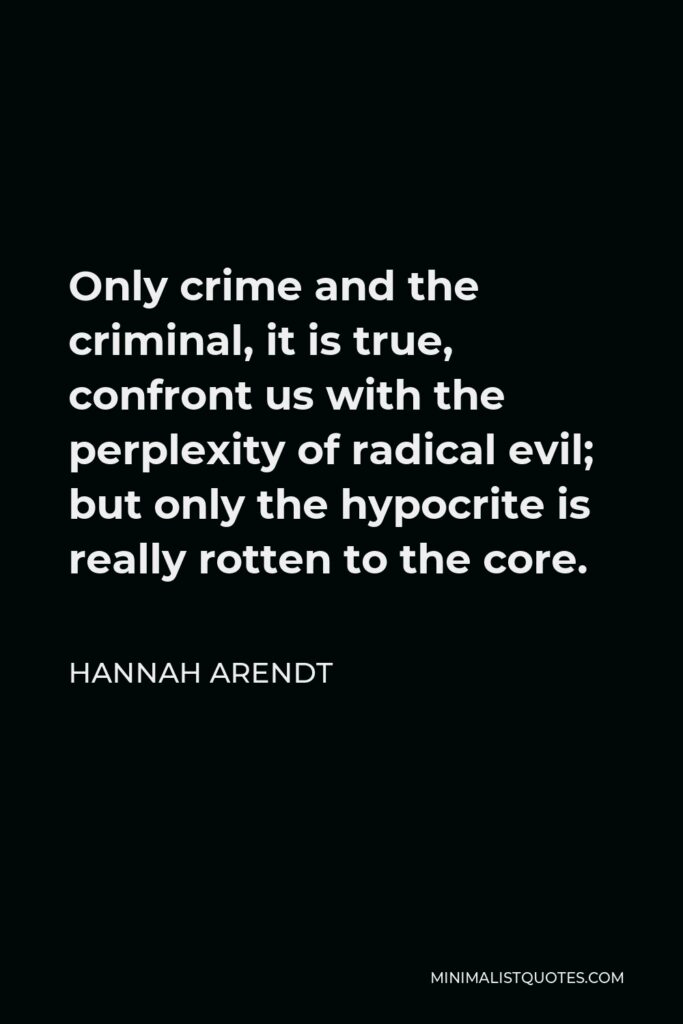

Only crime and the criminal, it is true, confront us with the perplexity of radical evil; but only the hypocrite is really rotten to the core.
HANNAH ARENDT -







No human life, not even the life of the hermit in nature’s wilderness, is possible without a world which directly or indirectly testifies to the presence of other human beings.
HANNAH ARENDT -





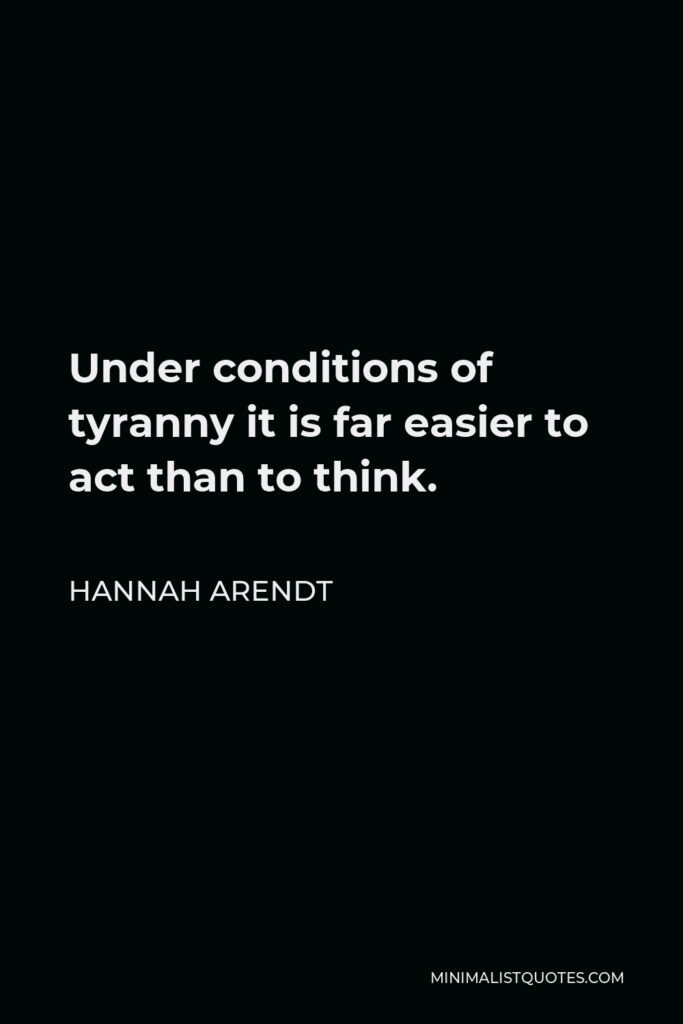

Under conditions of tyranny it is far easier to act than to think.
HANNAH ARENDT -





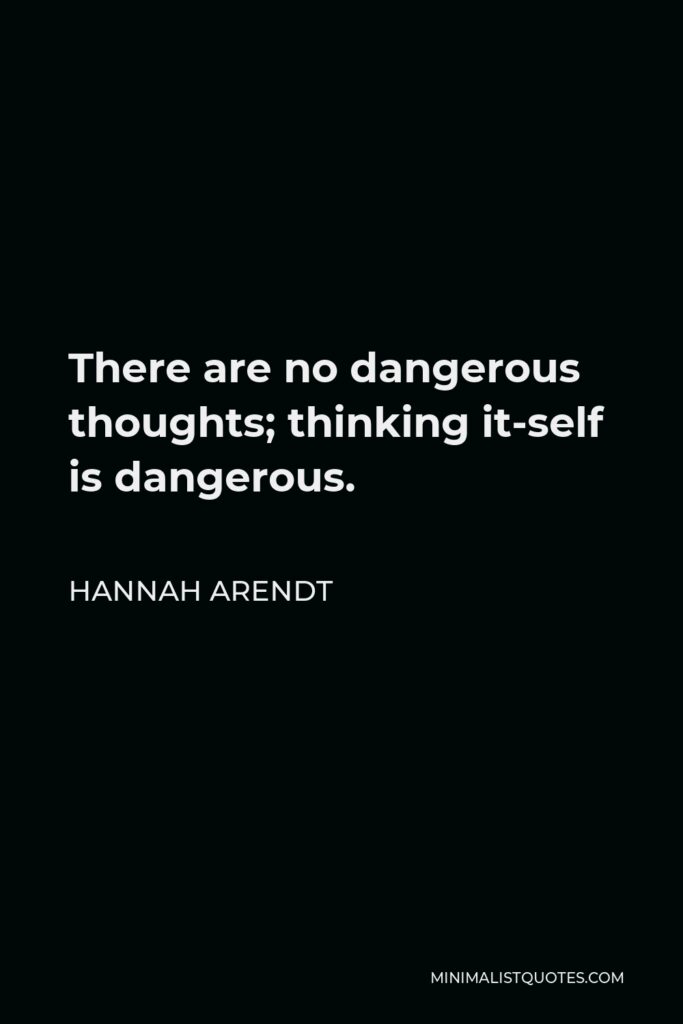

There are no dangerous thoughts; thinking it-self is dangerous.
HANNAH ARENDT -





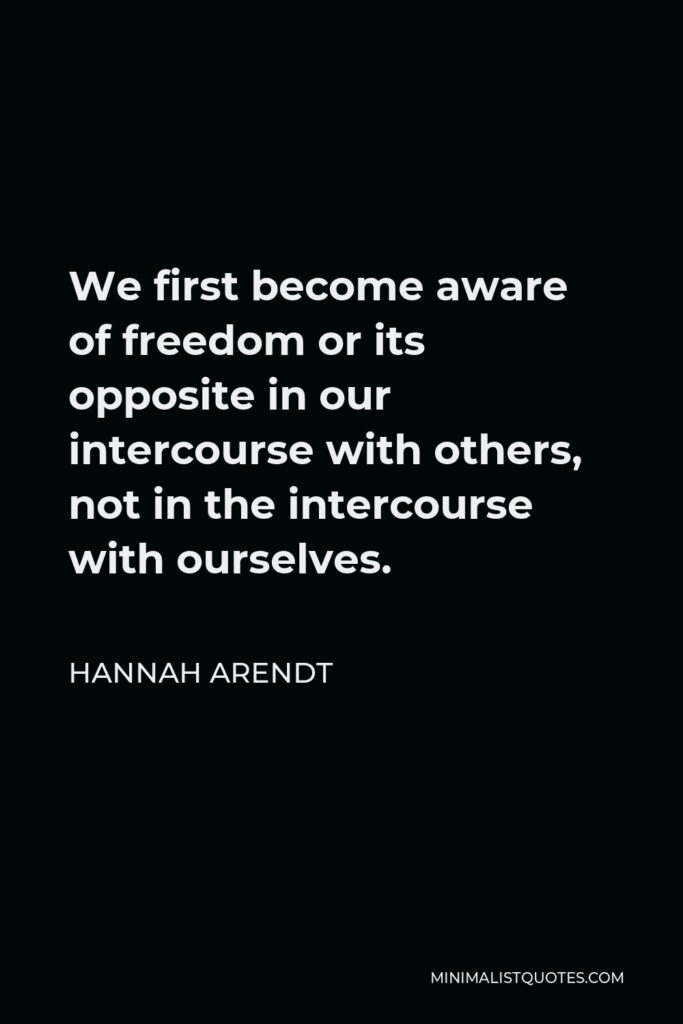

We first become aware of freedom or its opposite in our intercourse with others, not in the intercourse with ourselves.
HANNAH ARENDT







